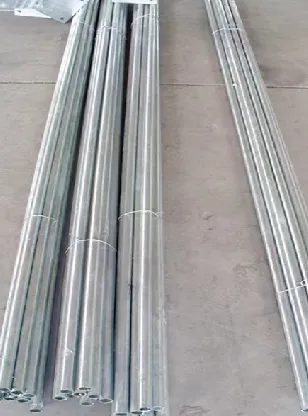loading...
- No. 9, Xingyuan South Street, Dongwaihuan Road, Zaoqiang County, Hengshui, Hebei, China
- admin@zjcomposites.com
- +86 15097380338
- Welcome to visit our website!
Prices for FRP Underground Water Storage Tanks You Need to Know
The Cost of FRP Underground Water Storage Tanks A Comprehensive Overview
As the demand for efficient water management solutions continues to rise, many industries are turning to fiberglass reinforced plastic (FRP) underground water storage tanks. These tanks are known for their durability, corrosion resistance, and versatility in various environmental conditions. However, one critical factor that potential buyers need to consider is the price of FRP underground water storage tanks. This article aims to provide a comprehensive overview of the cost associated with these storage solutions, including factors influencing pricing and average market rates.
Understanding FRP Technology
FRP tanks are made from a combination of fiberglass and resin, which allows them to withstand harsh environmental conditions and resist corrosion better than traditional materials like steel or concrete. Their lightweight structure also simplifies installation and reduces transportation costs. Consequently, many industries, including agriculture, construction, and municipal projects, have adopted FRP tanks for their water storage needs.
Factors Affecting the Price
1. Size and Capacity The size of the tank is one of the most significant factors influencing price. Larger tanks generally cost more due to the increased amount of raw materials required and the complexity of manufacturing. Typical sizes can range from small tanks holding a few hundred gallons to massive tanks with capacities of several thousand gallons.
2. Custom Features Many manufacturers offer customization options for FRP tanks, such as specific coatings, additional fittings, or insulation materials for temperature control. These custom features can add to the overall cost, but they may be necessary depending on the intended use of the tank.
3. Quality of Materials The quality of materials used in the construction of the tank can also affect pricing. Higher-quality resin and fiberglass will result in a more durable product that may come at a premium price. Investing in higher quality can lead to lower maintenance costs over time.
frp underground water storage tanks price

4. Installation Costs The installation of FRP tanks may require specialized equipment or skilled labor, which can increase overall costs. Depending on the tank's location and accessibility, additional excavation or preparation work might be necessary, contributing further to the expense.
5. Manufacturer Reputation Different manufacturers have varying reputations in terms of product quality and customer service. Established brands with a history of reliability often charge more for their products. However, customers may find that the added expense is justified by greater durability and better after-sales support.
Average Pricing
While prices can vary significantly based on the factors mentioned above, the average cost of FRP underground water storage tanks typically ranges from $5,000 to $25,000. Smaller tanks might be available for as low as $3,000, while larger or highly customized options can exceed $50,000. It's essential for buyers to obtain multiple quotes from reputable suppliers to ensure they receive a competitive price.
Long-term Value
Investing in an FRP underground water storage tank is often seen as a long-term value proposition. While the upfront costs can be considerable, the durability, low maintenance requirements, and efficiency of these tanks can lead to significant savings over their lifespan. Additionally, their ability to effectively store and manage water resources can provide critical support in water-scarce regions, adding another layer of value.
Conclusion
The price of FRP underground water storage tanks can vary widely based on several factors, including size, features, materials, installation costs, and manufacturer reputation. Potential buyers should carefully evaluate their specific needs and budget while considering the long-term benefits of this investment. By understanding the pricing landscape, consumers can make informed decisions that align with their water management objectives, ensuring they choose a solution that is both cost-effective and reliable.
-
The Rise of FRP Profiles: Strong, Lightweight, and Built to LastNewsJul.14,2025
-
SMC Panel Tanks: A Modern Water Storage Solution for All EnvironmentsNewsJul.14,2025
-
GRP Grating: A Modern Solution for Safe and Durable Access SystemsNewsJul.14,2025
-
Galvanized Steel Water Tanks: Durable, Reliable, and Ready for UseNewsJul.14,2025
-
FRP Mini Mesh Grating: The Safer, Smarter Flooring SolutionNewsJul.14,2025
-
Exploring FRP Vessels: Durable Solutions for Modern Fluid HandlingNewsJul.14,2025
-
GRP Structures: The Future of Lightweight, High-Performance EngineeringNewsJun.20,2025
